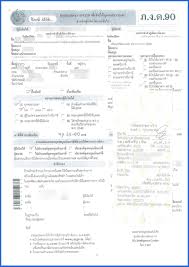The Essential Guide to Tax Returns in the UK

Introduction
Tax returns are a vital aspect of financial life for individuals and businesses in the UK. Ensuring compliance with tax regulations is crucial, as it not only affects personal finances but also contributes to national revenue. Understanding the process of filing a tax return can seem daunting, yet it is essential for maintaining transparency and fulfilling legal obligations.
What is a Tax Return?
A tax return is a document submitted to HM Revenue and Customs (HMRC) detailing an individual’s or business’s income, expenses, and taxes owed for the financial year. In the UK, self-assessment allows taxpayers to calculate their own tax liabilities, making it essential to keep accurate records and submit honest information. The deadline for submitting a paper tax return is usually 31 October, while online submissions must be completed by 31 January of the following year.
The Importance of Filing Accurately
Accurate tax returns are critical for several reasons. Firstly, incorrect or incomplete submissions can lead to penalties, interest on unpaid taxes, or even legal complications. Additionally, claiming allowable expenses and tax reliefs can significantly decrease the amount owed, potentially saving individuals and businesses a considerable sum. Therefore, familiarity with tax regulations and available deductions is vital for maximising financial benefits.
Recent Changes and Relevant Updates
Recently, HMRC has introduced measures to simplify the tax return process. The Making Tax Digital (MTD) initiative aims to digitise tax compliance, requiring businesses over a certain income threshold to keep digital records and file returns electronically. This change is part of the government’s strategy to improve efficiency and reduce errors in tax submissions. It is advisable for taxpayers to stay informed about such changes, as they may impact how returns are filed in the coming years.
Conclusion
In conclusion, understanding the tax return process in the UK is crucial for ensuring compliance and maximising potential savings. As the landscape of tax regulations evolves, staying informed about changes like Making Tax Digital can prove beneficial. For many, seeking professional advice or utilising digital filing systems may streamline the process and relieve the stress associated with tax season. With the right knowledge and resources, taxpayers can navigate the complexities of tax returns more effectively.









